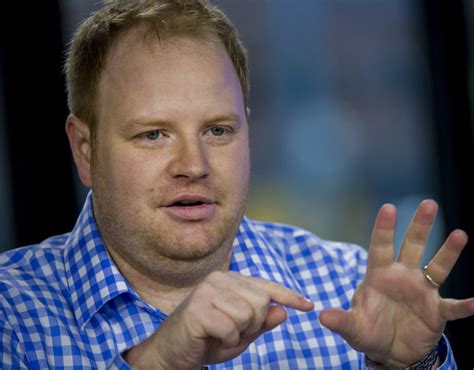A Quote by Marvin Ammori
Net neutrality is the idea that Internet service providers (ISPs) should treat all traffic that goes through their networks the same, not offering preferential treatment to some websites over others or charging some companies arbitrary fees to reach users.
Related Quotes
Net neutrality is the principle that the service providers who control or access, who own the pipes, should not favor some content over another. It's, you know, an even playing field for stuff on the Internet, and, you know, I think it's very important to the medium that it have a rough quality among contents. Everyone has their shot.
We have to ensure free and open exchange of information. That starts with an open internet. I will take a backseat to no one in my commitment to network neutrality. Because once providers start to privilege some applications or websites over others then the smaller voices get squeezed out and we all lose. The internet is perhaps the most open network in history, and we have to keep it that way.
Before I became the president of AT&T's consumer division, I was running strategy and our internet services, so I was the president of one of the first internet service providers, ISPs, AT&T Worldnet, and running our internet protocol product development as well. So I knew a lot about what was going on with the internet.
Although the FCC has tried to introduce net neutrality rules to avoid abusive practices like favoring your own services over others, they have struggled because there has been more than one court case in which it was asserted the FCC didn't have the authority to punish ISPs for abusing their control over the broadband channel.
Well, I think here there is some money gathered, especially in Europe, through the web, through connection to a network. I mean, imagine that in Brussels there is only one person, one single person, which is monitoring the traffic that goes on on the internet for the jihadist groups. In Strasbourg there are two people. So I mean you can imagine how easy it is to raise money through the net.
When I was teaching at an institution that bent over backward for foreign students, I was asked in class one day: "What is your policy toward foreign students?" My reply was: "To me, all students are the same. I treat them all the same and hold them all to the same standards." The next semester there was an organized boycott of my classes by foreign students. When people get used to preferential treatment, equal treatment seems like discrimination.
I know that there is a near unanimous view in Congress that state or local taxes on Internet access would directly deter the ability of consumers to obtain and utilize the Internet. If that is an accepted premise, as it should be, the same concept should apply to the net neutrality debate and its certainty to increase consumer bills.






























